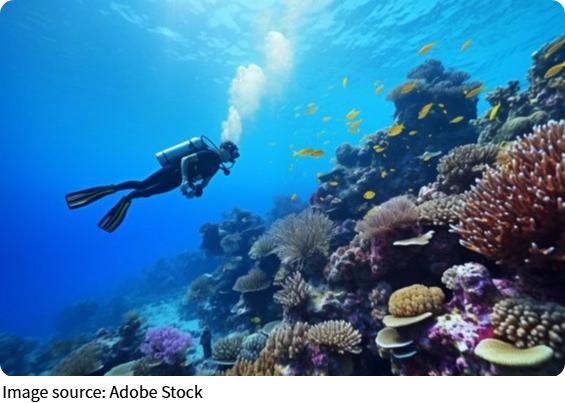Get Ready For Cuba

Exploring Cuba offers a unique blend of rich history, stunning landscapes, and a timeless charm that captures the imagination of every traveler.
For our Lykkers eager to experience an island where classic cars cruise past architecture and vibrant culture thrives, Cuba presents both exciting adventures and some travel challenges.
This guide presents a clear and friendly overview of what to expect, how to get around, where to stay, and useful tips for making the most of your visit.
Getting Ready for Cuba
Entry Requirements
Travelers must secure a special travel card that acts as a visa, valid for up to 90 days, available online through various official portals. A valid passport with at least six months' validity beyond your stay is required.
Health insurance approved by Cuban authorities must also be arranged prior to arrival. Additionally, visitors need to provide the address of their first accommodation in Cuba and complete an online health declaration before boarding the flight. These steps ensure smooth entry and avoid last-minute complications.
Flight Connections and Transit
Many international flights to Cuba arrive via Canadian cities, with airlines offering multiple routes to Havana, Varadero, and other destinations. When booking flights with layovers, especially in Canada, travelers should check transit visa requirements carefully, as missing necessary documents can result in denied boarding.
Experiencing Havana and Beyond
Guided Tours to Start
A recommended way to begin your Cuban adventure is by joining a guided tour of Havana's Old Town. Tours led in your language offer an insightful introduction to the city's architecture, local customs, and the island's social and economic backdrop.
These tours also provide practical advice about currency, safe shopping spots, and avoiding common tourist pitfalls.
What to See and Do
Havana's historical center features colorful buildings and lively plazas. Aside from exploring the capital, other notable destinations include the lush valley of Viñales with its farms, the beautiful beaches of Playa Larga, and the charming town of Trinidad. Each place offers unique activities, from hiking and horseback riding to cultural experiences like salsa lessons and local markets.
Money Matters and Currency
Carrying Cash and Currency Exchange
Cash in foreign currency, especially euros or Canadian dollars, is essential as many establishments prefer or only accept cash. Credit cards often face restrictions and are less widely accepted.
It's advisable to carry enough cash to cover daily expenses, considering that taxi fares and tours can be relatively costly compared to meals.
Understanding the Local Currency
Cuba now operates with a single currency system based on the Cuban peso. Currency exchange should be done carefully; official banks offer unfavorable rates, while exchanging with trusted locals, such as hosts or hotel staff, often yields better deals. Avoid street exchanges to reduce the risk of scams or counterfeit notes.
Accommodation Options
Staying in Casa Particular
The most authentic lodging experience is found in privately owned homes called "casa particular". These accommodations are government-authorized guesthouses where visitors rent a room or an entire apartment.
Staying here offers a chance to connect with local hosts and enjoy home-cooked meals, often superior to restaurant offerings. Casas particulares are generally clean, secure, and provide personalized services like arranging transportation or tours.
Booking Tips
Since some popular booking platforms are restricted due to sanctions, a VPN is helpful for accessing sites that list these accommodations. Booking in advance via trusted platforms allows travelers to review photos, amenities, and guest reviews, which enhances safety and comfort. Prices vary but expect to pay on average around 30 to 50 USD per night depending on the location and services offered.
Getting Around Cuba
Transport and Travel Times
Distances across the island can be longer than anticipated. Traveling by shared taxis is common and relatively reliable, but public buses may run late or experience breakdowns.
For example, the journey from Havana to Viñales typically takes about two and a half hours, while trips to more distant places like Playa Larga or Varadero can last five hours or more. Planning extra travel time helps avoid frustration.
Connectivity and Communication
Internet Access
Internet service is expanding but remains limited in many areas. Purchasing a local SIM card for mobile data is advisable for staying connected. SIM cards are available at specific locations in Havana and other cities, and your accommodation host can help direct you.
Internet speed varies, and some remote regions may lack coverage.
Using VPN Services
To access certain online services or booking platforms blocked in Cuba, a Virtual Private Network (VPN) app installed on your phone is useful. It masks your location, allowing access to sites for accommodation reservations and travel planning.
Essential Packing Advice
Bring Necessary Supplies
Due to economic conditions, some basic toiletries and medicines may be scarce or expensive locally. Items like insect repellent, soap, shampoo, and a small medical kit with essentials for minor ailments should be packed.
Offering extra toiletries as gifts to your hosts is appreciated and supports the local community.
Important Travel Tips
Be Aware of Common Scams
While Cuba is generally safe, some scams target tourists, such as false offers of festivals or tours that pressure for purchases of low-quality goods. Awareness and skepticism help travelers avoid these pitfalls. Trust guides and accommodation hosts for reliable recommendations.
Respect Distances and Timing
Planning your itinerary with realistic travel durations and adding buffer time between destinations is crucial. This approach reduces stress and makes for a more enjoyable trip.

In Conclusion
Cuba offers an unforgettable travel experience filled with vibrant culture, stunning scenery, and warm hospitality. For Lykkers planning their visit, understanding entry requirements, managing money wisely, choosing authentic accommodations, and preparing for transportation logistics ensures a smooth journey.
Although some challenges exist, careful preparation allows the island's beauty and charm to shine through. With open eyes and a spirit for adventure, Cuba promises memories that will last a lifetime.
-
 Fresh Salad DelightHow to Make a Simple, Healthy, and Delicious Homemade Fruit and Veggie Salad
Fresh Salad DelightHow to Make a Simple, Healthy, and Delicious Homemade Fruit and Veggie Salad -
 Tropical Fruits That HealBeyond Sweet Treats: 5 Tropical Fruits Packed with Powerful Health Benefits
Tropical Fruits That HealBeyond Sweet Treats: 5 Tropical Fruits Packed with Powerful Health Benefits -
 Papaya Aids DigestionWhy Is Papaya Called Nature's Best Digestive Aid? The Science and Benefits You Need to Know!
Papaya Aids DigestionWhy Is Papaya Called Nature's Best Digestive Aid? The Science and Benefits You Need to Know!